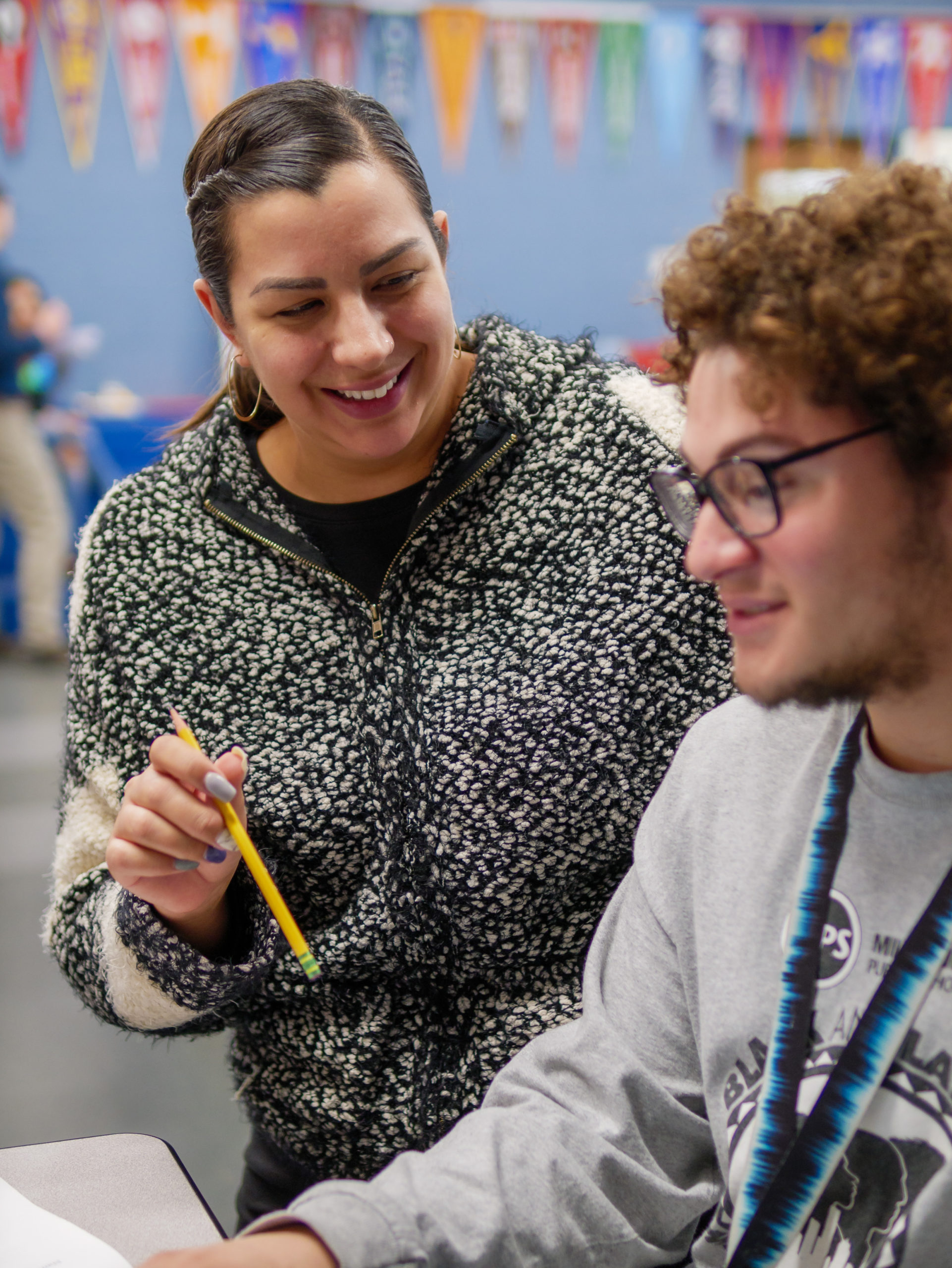Educator Spotlight: Carly Weckwerth
For Carly Weckwerth, education is more than just a job—it’s a calling. “I didn’t choose this,” she said. “It chose me.”
Carly’s first education job was as a tutor, working with middle-school students at Bruce-Guadalupe Community School on Milwaukee’s south side. Carly found that she was good at making genuine connections that put students at ease, particularly with students with behavioral challenges.
“They were the ‘bad kids,’ and I just found this bond with them. I felt that I could be more of myself, which allowed kids to be more of themselves,” said Carly.

Carly then moved into a full-time position as an advisor with an MPS program called GEAR UP (Gaining Early Awareness and Readiness for Undergraduate Programs), working with students in grades 6-12 to prepare them for college. She was placed at North Division High School. At the time, North Division was the lowest-performing high school in the state. Carly saw that students and staff were demoralized and wanted to be part of moving things in a different direction.
“We were number one for the wrong reasons,” Carly said. “Kids internalized that, staff did. Literally I had teachers telling me ‘these kids are never going to college, they’re not going anywhere’ when we had UWM up the street and they’d never even gone on a field trip there.”
Carly organized trips with students to visit the UWM campus and ended up supporting a number of students in pursuing college. She was committed to changing the perception that her students had been taught to have about their own abilities and potential.
“Your education shouldn’t be based on your zip code, even though funding is,” she said. “I wanted to be a change maker, someone who was more solution-oriented, and who gets to know these kids who have a certain narrative in the media.”
Carly has spent the past four years as a college and career counselor based at South Division High School. Being bilingual in English and Spanish has helped her connect with the school’s diverse student population. She considers Money Coach to be one of the critical ways she prepares students for future success, emphasizing the significance of one-on-one mentorship and the hands-on learning approach.
“It’s one of my favorite programs,” she said. “I think it should be a requirement for juniors and seniors.”
Carly noted that Money Coach has been particularly helpful to students she counsels whose parents speak English as a second language. These students, who often serve as translators for their parents in situations where they are managing their money, are able to pass along some of the knowledge they’ve gained in Money Coach to help their families better navigate the financial system.
“Not only does it help them, now they know the proper way to help their parents,” Carly said.
Carly also sees the relationships that form between students and their Money Coach mentors as opportunities to break down stereotypes about Milwaukee Public School students.
“It’s an exposure for people who maybe wouldn’t come to this side of town or this school, and it can open their eyes,” she said. “These kids aren’t scary – they’re regular high school students. It’s exposure to public school students and the stigmas that we face.”
Carly has seen those mentorship relationships continue to flourish after the program is over.
“The possibilities are endless, and it can blossom into more than just ‘here’s a financial program, here’s a packet, do the lesson.’ It can be so much more,” she said.
In all of her work as an educator and counselor, Carly sees trust as the foundation.
“You have to build trust with kids. Any relationship where there’s no trust, we’re not getting anywhere,” she said, “If you have no connection with these kids, they’re not talking to you, which makes it that much more difficult.”
The trust Carly is trying to build isn’t just between her and students; it’s also the trust that she wants students to have in themselves. One of her favorite phrases to use with students is “¿por qué no?” or “why not?”
“I try to tell them too, it’s not only ‘why not?’ but ‘why not YOU?’” Carly said. “You might have that one idea or that experience that no one else in the room can bring to the table.”
